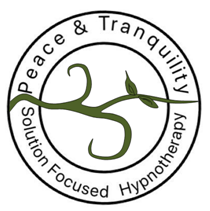Understanding trance

What does trance feel like?
How is trance induced?
Can anyone be hypnotised?
Is hypnosis safe?
What if I don't experience trance?
Can I speak during trance?
Will it be distressing?
Are there any side-effects?
Will I reveal personal secrets?
Can I eat, drink or smoke before sessions?
How will I feel afterwards?
Understanding trance
What does trance feel like?
The experience varies from person to person. Trance is pleasant, relaxing and peaceful. Some people experience mild tingling sensations, warmth, peace, drifting, floating, lightness, heaviness or imagery. It is so pleasurable for some people that they resent being brought out of trance! Other people hardly notice the trance; they just feel their mind wandering a little.
Usually clients find themselves going deeper in subsequent sessions. Any concerns usually disappear once the client realises how positive the experience is.
How is trance induced?
There are lots of different techniques. A common approach would be closing your eyes, breathing exercises, relaxing your muscles and then a pleasant visualised journey etc. Another induction involves staring at a picture or object. I am trained to use special language patterns and techniques to help your conscious mind relax. I don't use the domineering techniques that are usually seen in stage hypnosis.
Can anyone be hypnotised?
If you have experienced daydreaming, getting 'lost' in a film, book, music, or a boring or repetitive task, you have already experienced a trance. People with severe learning difficulties and children under the age of 5 can experience trance but may find it more difficult to benefit from a 'talking therapy'. A client does not have to want to relax, or even be able to relax, although they might as well take time out and enjoy the process even more! It helps if the client and therapist have good rapport and trust, and if the client genuinely wants to achieve their goals and is expecting a powerful form of 'assistance' rather than a 'miracle cure'.
Hypnosis can be resisted and I would not hypnotise someone against their will. The depth of trance is normally unimportant.
Is hypnosis safe?
Hypnosis and trance are 100% natural and safe - you already undoubtedly experience trance regularly in day-to-day life. You cannot get 'stuck' in a hypnotic state. You remain aware of yourself and your surroundings and you can voluntarily terminate the trance at any point. You can also speak at any time.
There are no known contraindications with epilepsy or medications. In fact, relaxing is normally beneficial. However, as blood pressure drops, someone who already has low blood pressure may feel a bit dizzy and we can help manage this.
Whilst trance itself is completely safe, we also need to consider the therapeutic work we'll be conducting in trance. I would need a letter from the doctor if, for example, someone was considering therapy for something very emotional and they had severe heart problems that could be affected. Take medications as usual and bring along any you might need for normal day-to-day living, such as medications for asthma.
What if I don't experience trance?
This is not likely to happen. Even the most sceptical clients enter a trance if they want to, including people who believe they cannot be hypnotised. In fact, such clients have a strong will and they can use this mind control to their advantage and choose to enter a trance when they feel ready.
Hypnosis is not sleep but this provides a good analogy. If you either try to stay awake or try too hard to sleep, it is hard to sleep. The same is true of entering trance. The key is to flow with and accept whatever thoughts enter your head. You can communicate any concerns to me so I can help.
Can I speak during trance?
Yes. Sometimes I ask questions and at any time you can communicate your needs, thoughts, ideas, memories, concerns, or anything else.
Will it be distressing?
Trance induction is a very gentle process and trance is relaxing. However, the nature of some problems may mean we need to do things that are uncomfortable.
For example, someone with a fear of cats will, at some point in therapy, need to think about them. This enables them to learn how to manage their emotions in a safe environment and with the therapist's coaching and support. It also helps the client test progress.
Importantly, clients can stop any therapeutic technique at any time. I have methods to quickly manage any distress.
Are there any side-effects?
Only positive ones such as being more relaxed, realising your potential, problem-solving, being happier, less fearful, more content and/or sleeping better. There are no known negative effects on driving, operating machinery, etc. from the trance, over and above anything experienced in day-to-day living. You are likely to feel alert, refreshed and ready for the challenges ahead. Tiredness occurs in some clients, especially if they have been tackling difficult or emotional issues.
Will I reveal personal secrets?
Clients remain in control and only disclose what they want to.
Can I eat, drink or smoke before sessions?
Yes. However, please avoid alcohol and recreational drugs. If you have an active mind or find it difficult to relax, it might help to avoid stimulants, such as caffeine (e.g., tea, coffee, cola, chocolate) and nicotine (tobacco).
How will I feel afterwards?
Typically, more relaxed, refreshed, positive and ready for the challenges ahead.
The pleasant relaxation effects of an individual trance session can last hours, depending on the person and life events after they leave the therapy room. Techniques can be offered to enable you to return to these relaxed feelings at will.
However, if the session has involved a lot of thinking or emotion, clients occasionally feel quite tired straight after or a few hours after the session, just as they might after a day shopping or at work.
